editorial board
 Pete Burkholder
Pete Burkholder
Pete Burkholder is a professor of history at Fairleigh Dickinson University in Madison, New Jersey, where he also served as founding chair of the Faculty Teaching Development Program from 2010 to 2017. FDU has recognized him as both Teacher of the Year and Distinguished Teaching Faculty, and he served as a teaching fellow in the University of Wisconsin System. He is on the national advisory board of the Society for History Education and is a consulting editor for College Teaching. Burkholder has published extensively on teaching-related topics. He’s had three articles make the annual top 10 list of most popular articles in Faculty Focus, and he is the recipient of the American Historical Association’s Gilbert Award for the best article on teaching history.
 Jon Crylen (Managing Editor)
Jon Crylen (Managing Editor)
Jon Crylen is editor of online publications for Magna Publications. He received his PhD in film studies from the University of Iowa (UI) and has taught film courses at both UI and Coe College. His writing, which focuses on undersea film and media, has appeared in the Journal of Cinema and Media Studies, Media Fields Journal, In Media Res, Cinema of Exploration: Essays on an Adventurous Film Practice (Routledge), and A Cultural History of the Sea in the Global Age (Bloomsbury). You can reach him at jon.crylen@magnapubs.com.
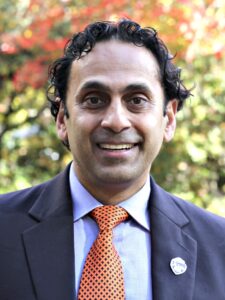 Regan A. R. Gurung (Contributing Editor)
Regan A. R. Gurung (Contributing Editor)
Regan A. R. Gurung is associate vice provost and executive director of the Center for Teaching and Learning and professor of psychological science at Oregon State University. He has published 16 books, most recently Thriving in Academia: Building a Career in a Teaching Focused Institution and A Pocket Guide to Online Teaching, and over 130 peer-reviewed research articles. He is winner of the American Psychological Foundation’s Charles L. Brewer Distinguished Teaching of Psychology Award and the CASE Wisconsin Professor of the Year Award, founding coeditor of APA’s journal Scholarship of Teaching and Learning in Psychology, and past president of the Society for the Teaching of Psychology and Psi Chi, the International Honor Society in Psychology.
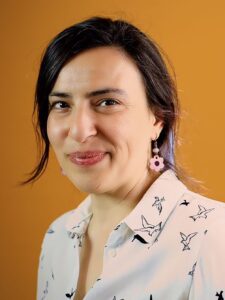 Mays Imad (Contributing Editor)
Mays Imad (Contributing Editor)
Mays Imad is an associate professor of biology and equity pedagogy at Connecticut College. Previously, she taught for 14 years at Pima Community College in Tucson, Arizona, where she also founded the teaching and learning center. A Gardner Institute Fellow, an AAC&U Senior STEM Fellow, and a Mind & Life Institute Fellow, Imad researches the social determinants of wellbeing and their effects on students’ ability to learn and thrive. A nationally recognized expert on trauma-informed teaching and learning, Imad works with faculty across disciplines and institutions to promote inclusive, equitable, and contextual education—all rooted in the latest research on the neurobiology of learning.
 Marie K. Norman
Marie K. Norman
Marie Norman is associate professor and director of the Innovative Design for Education and Assessment (IDEA) Lab at the Institute for Clinical Research Education in the University of Pittsburgh’s School of Medicine, where she spearheads online and hybrid educational initiatives. A cultural anthropologist by training, Norman has taught in higher education for more than 20 years, consulted with faculty from a wide range of disciplines, and led workshops and seminars on teaching and learning at institutions in the US, Colombia, Qatar, Australia, and Russia. Norman is coauthor of the book How Learning Works: 7 Research-Based Principles for Smart Teaching. She continues to find anthropology an excellent springboard for understanding different disciplinary cultures and their approaches to teaching.
 Maryellen Weimer (Editor Emerita)
Maryellen Weimer (Editor Emerita)
Maryellen Weimer edited and wrote for The Teaching Professor from its founding as a newsletter in 1987 until May 2022. A distinguished scholar and author, Weimer’s Learner-Centered Teaching: Five Key Changes to Practice (2nd ed.; Jossey-Bass, 2013) remains one of the most influential books for educators looking to adopt a learner-centered approach in their classrooms. Her other books include: Inspired College Teaching: A Career-Long Resource for Professional Growth (Jossey-Bass, 2010), Enhancing Scholarly Work on Teaching and Learning Professional Literature that Makes a Difference (Jossey-Bass, 2006), and Improving Your Classroom Teaching (Sage Publications, 1993). Weimer is a professor emerita of teaching and learning at Penn State Berks and won Penn State’s Milton S. Eisenhower award for distinguished teaching in 2005. Weimer has consulted with more than 600 colleges and universities on instructional issues and regularly keynotes national meetings and regional conferences.
 Rebecca Zambrano
Rebecca Zambrano
Rebecca Zambrano can’t stop researching, thinking, and writing about what sparks passion for learning in people of all ages. She designs learning that taps people’s creativity and experience to move the learning process through critical thinking and into deeper territory. In her role as the director of online faculty development at Edgewood College, she has designed and taught courses in many formats since 2004. She currently designs professional development for faculty across all content areas, mentors faculty colleagues, leads assessment processes, and helps guide the direction of college-wide faculty development efforts. Rebecca is an expert in distance learning leadership, institutional assessment, instructional design, and student motivation.
 Stephen L. Chew (Contributing Editor)
Stephen L. Chew (Contributing Editor)
Stephen L. Chew is a professor of psychology at Samford University in Birmingham, Alabama. Trained as a cognitive psychologist, one of his primary research areas is the cognitive basis of effective teaching and learning. Chew has worked to translate learning research for teachers and students. He developed a research-based framework of cognitive challenges that teachers must address to engender student learning. He is the creator of a groundbreaking series of YouTube videos for students on how to study effectively which have been viewed almost three million times. Chew is the recipient of multiple national awards for his teaching and research, including being named the 2011 Outstanding Master’s Universities and Colleges U.S. Professor of the Year by the Carnegie Foundation for the Advancement of Teaching. Chew serves as the chair of the National Institute on the Teaching of Psychology (NITOP).
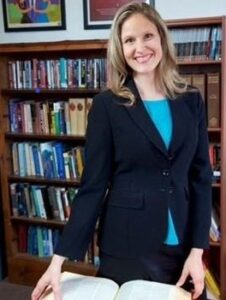 Nichole DeWall (Contributing Editor)
Nichole DeWall (Contributing Editor)
Nichole DeWall is a professor of English at McKendree University in Lebanon, Illinois, where she teaches Shakespeare, medieval and early modern literature, drama, and composition courses. McKendree has recognized her with multiple awards, including the W. Norman Grandy Faculty Award and the Emerson Excellence in Teaching Award. DeWall has published extensively on representations of disease in Shakespeare’s drama and on teaching in higher education. Her writing has appeared in English: Journal of the English Association (Oxford UP), Journal of Excellence in College Teaching, and Representing the Plague in Early Modern England (Routledge). At McKendree, she serves as a provost fellow and director of the honors program. You can reach her at nbdewall@mckendree.edu.
 Gary R. Hafer
Gary R. Hafer
Gary R. Hafer is the John P. Graham Endowed Teaching Professor and professor of English at Lycoming College in Pennsylvania, where he teaches writing to students in all disciplines. He is the author of Embracing Writing: Ways to Teach Reluctant Writers in Any College Course (Jossey-Bass, 2014), and over the years his articles have appeared in College English, the Journal of Developmental Education, The Teaching Professor, Faculty Focus, and Computers and Composition. In 2010, Hafer was awarded the Constance Cupp Plankenhorn Alumni Award for Faculty Excellence and earned the Award for Exemplary Teaching from the General Board of Higher Education and Ministry. He served on the advisory board of the Teaching Professor Conference from 2013 to 2015.
 Wren Mills
Wren Mills
Wren Mills is the assistant director for the Center for Innovative Teaching and Learning at Western Kentucky University (WKU), where she provides both in-person and virtual training and consultations for faculty who wish to better their skills with technology in the classroom and online teaching; this includes Quality Matters training. She also serves as a facilitator for the Graduate Assistant Teaching Institute (GATI), the Part-Time Faculty Teaching Institute, and other professional learning communities for faculty at the university. In addition, Mills consults with faculty and staff on integrating high-impact practices (HIPs) into their courses and programs.
 John Orlando (Contributing Editor)
John Orlando (Contributing Editor)
John Orlando is a professor of philosophy at Colorado Technical University. He has spent more than 20 years developing and growing educational programs at a variety of colleges and universities, as well as teaching faculty how to be great instructors both online and in face-to-face classrooms. He writes and edits articles on online teaching and learning for The Teaching Professor and has published articles and delivered many presentations, workshops, and keynotes on online education, teaching with technology, and social media. He is a passionate education consultant, helping teachers learn how to use technology to transform their practice and improve student performance, and has managed faculty training programs at the University of Vermont, Norwich University, and Northcentral University as well as employee training programs in the corporate sector.
 Dave Yearwood
Dave Yearwood
Dave Yearwood is a professor in the Technology Unit of the School of Entrepreneurship at the University of North Dakota. He has been teaching in higher education for more than 25 years, including graduate education courses in curriculum development, assessment, adult learners, and instructional technology. Yearwood’s research and publications (including a book chapter on podcasts) on instructional technology focus primarily on electronic pedagogy—how faculty infuse presentation or other technologies into their practice to connect and engage students, enhance their understanding of course content, and promote dialogue that leads to a critical examination of a topic/subject under examination.

 Pete Burkholder
Pete Burkholder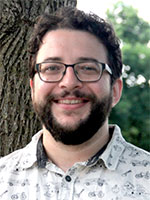 Jon Crylen (Managing Editor)
Jon Crylen (Managing Editor) Regan A. R. Gurung (Contributing Editor)
Regan A. R. Gurung (Contributing Editor) Mays Imad (Contributing Editor)
Mays Imad (Contributing Editor)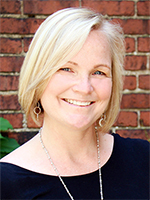 Marie K. Norman
Marie K. Norman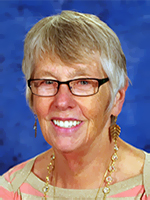 Maryellen Weimer (Editor Emerita)
Maryellen Weimer (Editor Emerita)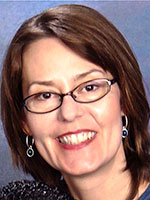 Rebecca Zambrano
Rebecca Zambrano Stephen L. Chew (Contributing Editor)
Stephen L. Chew (Contributing Editor) Nichole DeWall (Contributing Editor)
Nichole DeWall (Contributing Editor) Gary R. Hafer
Gary R. Hafer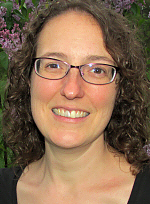 Wren Mills
Wren Mills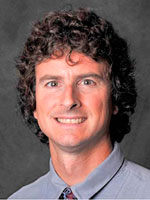 John Orlando (Contributing Editor)
John Orlando (Contributing Editor)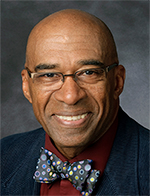 Dave Yearwood
Dave Yearwood
